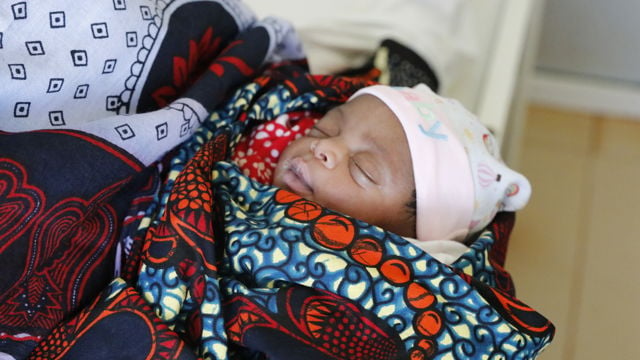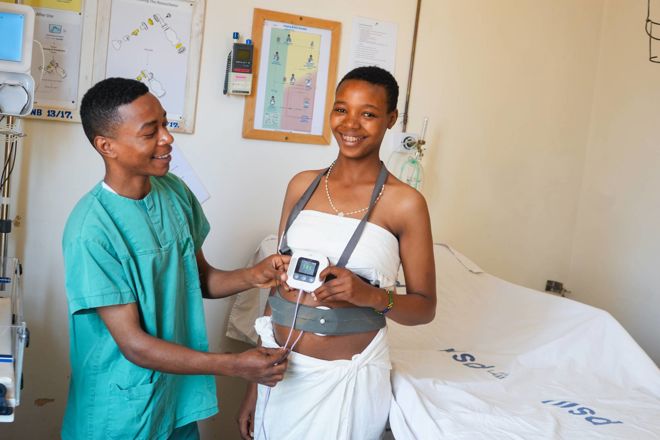With Support from Norwegian Aid, More Women and Newborns in Tanzania Are Surviving Childbirth

A major Norwegian aid and research programme has achieved a 75 per cent reduction in the number of women who die during childbirth and a 40 per cent reduction in the number of newborn deaths in Tanzania. The programme has received international recognition and is considered a breakthrough in neonatal medicine.
Complications during childbirth are one of the leading causes of death among women in many poor countries. Nevertheless, Tanzania can now point to outstanding results from the work to reduce maternal-child mortality, thanks to the unique collaboration between Norwegian researchers, Norad, Laerdal Global Health and the Tanzanian health authorities. Recently published studies show, among other things, that:
- The number of women in Tanzania who die in connection with childbirth has been reduced by no less than 75 per cent in three years.
- Newborn mortality in Tanzania has been reduced by 45 per cent during the same period.
- Enough newborns to fill 20 school year groups have been saved through the Norwegian-backed programm

The first minute after birth is considered the most dangerous minute in a child’s life. Norwegian research and aid have contributed to excellent progress in Tanzania, with a major reduction in both newborn mortality and maternal mortality.
Inspiring and impressive
The Safer Births Bundle of Care (SBBC) programme has focused on simulation exercises and on-the-job training for healthcare professionals in Tanzania. The results have exceeded all expectations.
– We are committed to ensuring that aid money goes to activities with documented effects. What the project has achieved is very impressive, says Bård Vegar Solhjell, Director General of Norad.
300,000 pairs of mothers/newborns (pregnant women, new mothers and newborns) have participated in the extensive follow-up study in relation to the programme. The study was conducted by researchers at the University of Stavanger, Stavanger University Hospital and Laerdal Global Health in collaboration with Norad and the Tanzanian health authorities.
The programme is financed by Norwegian aid funds and the Global Financing Facility, a World Bank fund that supports the work to improve maternal-child health in developing countries.

Moyo and NeoBeat heart rate meters measure heart rate before and after birth. The technology has been developed by Laerdal Global Health in collaboration with researchers at Stavanger University Hospital and the University of Stavanger. The devices that have been deployed at hospitals in Tanzania are simple to use and have also proven to be extremely useful at hospitals in Norway and other high-income countries.
Lessons learned from Tanzania can benefit the rest of the world
The research was conducted in Norway and Tanzania and resulted in a childbirth programme that has now been implemented at 150 hospitals in Tanzania. As a result of the SBBC programme and the follow-up studies from Tanzania, the World Health Organization is now changing its international guidelines for neonatal care for newborns who require facilitation of breathing and women who bleed after childbirth.
The results from the studies have been published in one of the world’s most important and most renowned research journals, the New England Journal of Medicine.